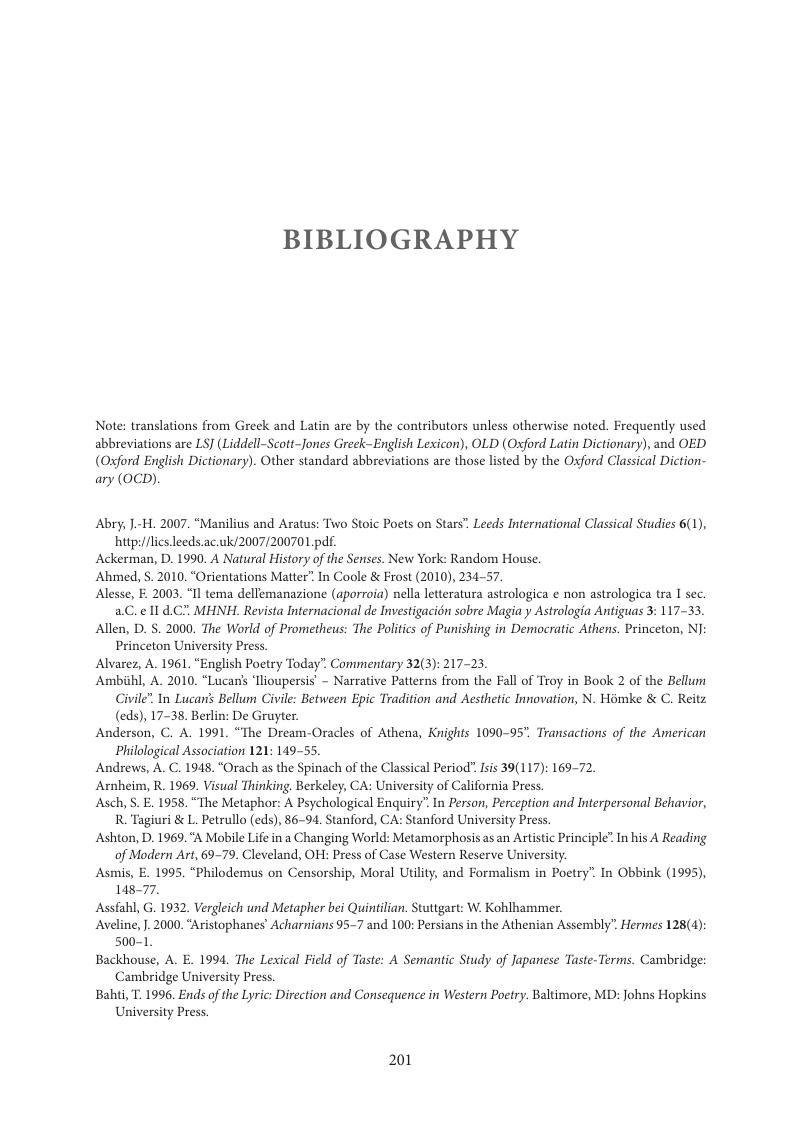Book contents
- Frontmatter
- Contents
- Contributors
- Introduction: synaesthesia and the ancient senses
- 1 Why are there nine Muses?
- 2 Haptic Herodotus
- 3 The understanding ear: synaesthesia, paraesthesia and talking animals
- 4 Aristophanes, Cratinus and the smell of comedy
- 5 “Looking mustard”: Greek popular epistemology and the meaning of δριμύς
- 6 Plato, beauty and “philosophical synaesthesia”
- 7 Manilius' cosmos of the senses
- 8 Reading death and the senses in Lucan and Lucretius
- 9 Colour as synaesthetic experience in antiquity
- 10 Blinded by th light: oratorical clarity and poetic obscurity in Quintilian
- 11 The sense of a poem: Ovids Banquet of Sence (1595)
- 12 Saussure's anaphonie: sounds asunder
- 13 Beyond Narcissus
- Bibliography
- Index
Bibliography
- Frontmatter
- Contents
- Contributors
- Introduction: synaesthesia and the ancient senses
- 1 Why are there nine Muses?
- 2 Haptic Herodotus
- 3 The understanding ear: synaesthesia, paraesthesia and talking animals
- 4 Aristophanes, Cratinus and the smell of comedy
- 5 “Looking mustard”: Greek popular epistemology and the meaning of δριμύς
- 6 Plato, beauty and “philosophical synaesthesia”
- 7 Manilius' cosmos of the senses
- 8 Reading death and the senses in Lucan and Lucretius
- 9 Colour as synaesthetic experience in antiquity
- 10 Blinded by th light: oratorical clarity and poetic obscurity in Quintilian
- 11 The sense of a poem: Ovids Banquet of Sence (1595)
- 12 Saussure's anaphonie: sounds asunder
- 13 Beyond Narcissus
- Bibliography
- Index
Summary

- Type
- Chapter
- Information
- Synaesthesia and the Ancient Senses , pp. 201 - 220Publisher: Acumen PublishingPrint publication year: 2013

